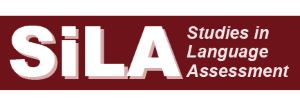The new national literacy tests for post-primary students in Aotearoa New Zealand: How process and design issues undermine principles of a strong and fair qualification
Margaret Franken, Independent Researcher
|
https://doi.org/10.58379/RCIH4196
|
Volume 12, Issue 2, 2023
|
Abstract: From 2026 in Aotearoa New Zealand, post-primary school students will be required to achieve new literacy standards in reading and writing through national standardised tests called Common Assessment Activities or CAAs. The CAAs, in their pilot phase, are revealing dire results and fundamental flaws. This paper discusses the results of three pilot events in 2021 and 2022 trialling the CAAs and suggests some factors that are likely to have played a part in influencing the results – particularly for English Language Learners (ELLs), Realm nations’ students, Pasifika, and Māori students. These factors include conceptual or construct issues, as well as test design, marking, and administration issues. This unfair assessment is also inequitable because it has been positioned as a co-requisite for New Zealand’s senior years’ qualification, the National Certificate of Educational Achievement (NCEA), thus effectively trumping other measures of school achievement. The paper suggests that if testing is to continue, the New Zealand Qualifications Authority (NZQA) and the Ministry of Education should rethink not only the design, marking and management of the tests to make them a fairer, more valid and reliable process, but also the tests’ standing as a co-requisite for senior years’ qualification.
Key words: Literacy testing, literacy standards, foundational literacy, literacy across the curriculum
